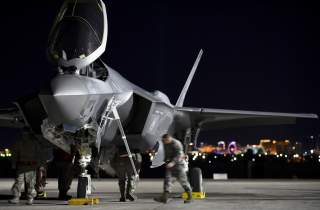Secretary Mattis Should Stop Babying South Korea
Time redo this relationship.
Finally, Chang offered several entertaining “kitchen sink” arguments. There’s the alleged value of forward deployment for the U.S. to more easily get involved in a war that South Korea should be prepared to fight. And the permanent need for a nearly 30,000-member garrison in the South to grab nuclear weapons in the North if, at some unpredictable and unlikely future moment, the DPRK collapses and China doesn’t get there first. As well as South Korean involvement in Washington’s misbegotten invasion of Iraq. Such token participation, though welcome, doesn’t counterbalance a promise to go to nuclear war on Seoul’s behalf.
Finally, Chang doesn’t trust his own country: in his view the U.S. must restrain its ally from launching an aggressive war. Or, as Chang put it, “restraining South Korea’s disproportionate responses to provocations from the North.” Why should America be allied with a nation which might drag the U.S. into war? Actually, the best way to “restrain” Seoul would be to make clear that the ROK is on its own militarily, so if it starts a war, the U.S. won’t be coming to end it.
The U.S.-South Korea alliance was created more than 63 years ago. It has outlived its usefulness. Instead of reassuring a government in Seoul which almost certainly will be swept away in the coming months, Secretary Mattis should prepare the way for a renegotiation to turn the alliance into a looser but more equal cooperative military relationship. Instead of remaining a ward of America, South Korea should take on responsibilities commensurate with its capabilities.
Doug Bandow is a Senior Fellow at the Cato Institute and a former Special Assistant to President Ronald Reagan. He is the author of Tripwire: Korea and U.S. Foreign Policy in a Changed World and co-author of The Korean Conundrum: America’s Troubled Relations with North and South Korea.
Image Credit: Creative Commons/Flickr.

